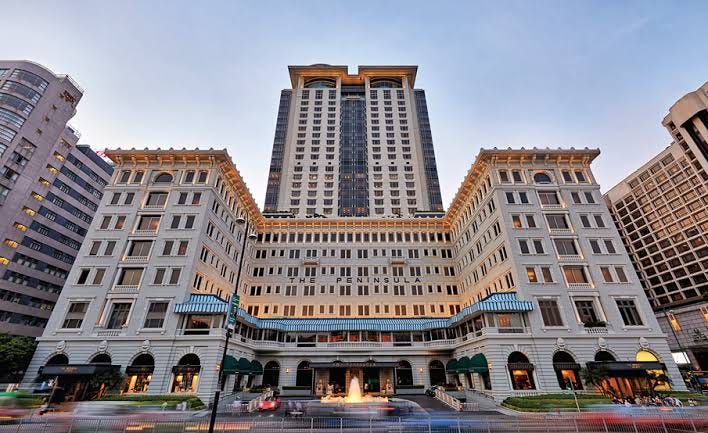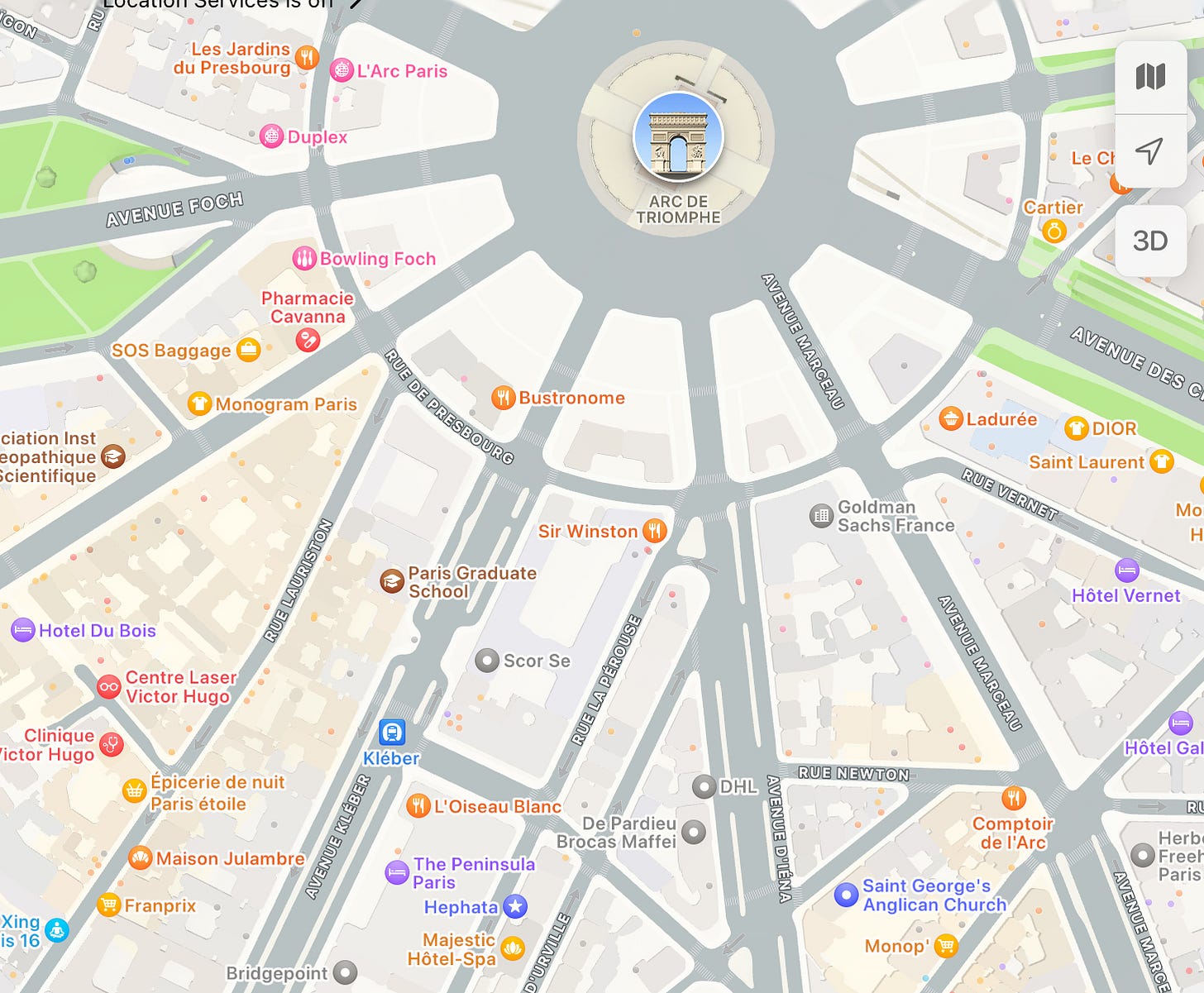Hong Kong Layover
Or: buying something for 5 HKD that's worth about 25
Let’s start the day by talking about one of my favourite weird “work out” situations, Hong Kong and Shanghai Hotels (HKSH). They are cursed by a number of factors, the first being they are listed in Hong Kong (nobody likes the Kong no more1), the second they have a very limited float (~5% is available) and the third is they have a controlling family, the Kadoories, who have very little interest in interacting with both their shareholders and the public. I’m reminded of Nick Sleep talking about one company listed on the “pink sheets” in America that didn’t deign to even send reports to non-shareholders (when Sleep inquired as to how he was to determine if a company was investing in otherwise without an annual report, the reply was “it’s a common complaint”).
On the inverse, though these are a set of conditions that lead to a stock that might be worth buying. The company has been owned by the family since 1866, and they have no intention of (ever) selling. Nor are management that concerned with outsiders because they’re more concerned with sticking to their knitting — that is, running world-class hotels alongside some more oddball assets. And finally, obviously, given that the float is so thin any significant buying activity will cause the stock to move to the upside.
Now let me tell you how cheap this thing is. Due to the vagaries of accounting, the group’s hotels and golf courses are valued at cost less depreciation (not their office buildings and arcades — I told you, this is an oddball). Some of these assets date back to the 1800s, so it comes as no surprise that the values of these hotels and so on has risen somewhat as we have emerged a couple of centuries later into 2024. The true NAV per share is somewhere around 25 HKD, and the stock trades at 5.70 HKD, which suggests a valuation gap of around 20 HKD or so. The valuation gap persists because the Kadoories have little inclination to ever sell those assets. As I said, they’ve had them since the 1860s, alongside their more “important” company, CLP holdings — an electricity company so old its ticker on the Hong Kong stock exchange is 2.
And yet the math doesn't lie. There’s a massive gap there and you are, empathetically, buying cash generating assets at a substantial discount. These are not just any cash generating assets, either — The Peninsula Hotels (and their real estate holdings) sit in prime areas of Paris, London, New York, Hong Kong and so on. These are valuable chunks of real estate. It’s worth contrasting that to the failed promise of Seritage, and of Eddie Lampert.
Lemme tell you something about Seritage
Early on in my career as a “value investor” I was interested in Seritage Growth Properties Limited (a lot of other people were too. We were all wrong!). Seritage was a real estate holding company spun out of the once-great American retail empire, Sears. In 2013 or so the investor Eddie Lampert took over as CEO of Sears — he was also its biggest shareholder. Lampert was often described as the “new” Buffett, when in fact he was really just a snake oil salesman. He restructured Sears into about 30 units that competed against each other in a kind of Darwinian management move, which of course was pure lunacy — if you have units bidding and competing against each other you end up cannibalising your entire business2. You end up with a zombie business eating itself.
Spoiler: he wasn’t
Anyway — Lampert is a dunce, obviously, but one thing he did do is create a holdco of all the real estate Sears owned. It owned a lot, all over America. Sure, its retail business was dying, but the property was valuable (in theory). I had to go back to valueinvestorsclub dot com to find what investors were writing back then. Here’s an actual quote:
In summary, we believe that SRG’s stock has the potential to be worth $117.86 to $144.28 over time, representing between 202% and 270% upside to the current share price. While it may take years for SRG to achieve these valuation levels, the annualized returns from the current share price should still be substantial. If SRG takes five years to achieve the mid-point of our price target, the compounded annual total return will be approximately 30%. Moreover, we believe that SRG has the opportunity to front-load returns for shareholders by focusing on its highest return opportunities first, including JVs, auto center redevelopments, and redevelopments of its higher quality Type II properties. As investors digest the value creation from these projects, we believe that the shares will trade materially higher.
Seritage trades at $4.02 today. Back then, in 2016, it traded around $35.00. What went wrong?
Well — put simply, all that real estate Sears owned was in shitty areas, and it turns out nobody wanted to lease real estate in shitty areas. You only need to walk around central Auckland, or Newmarket, and see what empty stores look like — it’s not pretty. It’s even worse if your real estate is in Diddleydoo Ohio.
I like to think about Seritage and about Lampert because it’s a great case of very smart investors (I think even Buffett had a personal stake in Seritage) getting it wrong because they couldn’t project the future correctly. Lampert was the golden child for a while, until he wasn’t. He’s still a billionaire — don’t worry about him.
This brings us back to the Hong Kong Shanghai Hotels. Here’s where The Peninsula is in Paris:
And here is where it is in Hong Kong:
You know, these are quite good locations (perhaps I’m understating it) and they’re locations worth money. They’re not Sears. The Kadoories are not Lampert, either — where Lampert milked and drained Sears for its last drop, the Kadoories are long-term operators who have owned the business since the 19th century.
Now — there’s a lot of NAV-discount situations out there. There’s Prosus, the South African holding company that owns a 25% stake in Tencent. There’s CDI, which is the Arnault’s holding company for LVMH. There is of course the Bolloré web of companies3— then there’s Barry Diller’s IAC, etc. The problem with discounts to NAV is they can persist for a while (closer to home, consider Oceania Healthcare, or Rakon4, etc). But when a discount gap is so profound — i.e. 20 HKD left on the table — well, it kinda makes you think.
NZ
Some good news for Rakon — ISS space contract. Like I’ve said — their stuff is good, but their PR is not so good. Still a no-brainer if you value it at the multiples of overseas cos — but you have to be patient.
NZX — Markets with Madison talks with FirstCape re fixing the NZX. Link. On LinkedIn Madison calls Malcom Jackson “bold”, I call it stating the obvious. I said all this on August 2nd (and prior to that…). But better late than never — on ya First Cape.
Worth watching
I’d be lying if I said this newsletter doesn’t get political — in my experience, all business is political. There’s a hikoi on at parliament today — I encourage everyone to watch Justice Joe Williams’ discussion of Te Tiriti below5. Most lawyers (and judges) are dry and boring and almost perversely dull. Joe Williams empathetically not that, and if you’re going to proffer an opinion on our founding document, then you ought to listen to this.
Also, I really love this interview with the Druck. We love the Druck.
Sad face
Incidentally this is why I find followers of Ayn Rand stupid.
Andrew at East 72 does a better job of delving into this than me.
I suspect the RAK discount will persist until Lorraine resigns.
https://www.courtsofnz.govt.nz/assets/7-Publications/1-Speeches-and-papers/hj1jh.pdf






